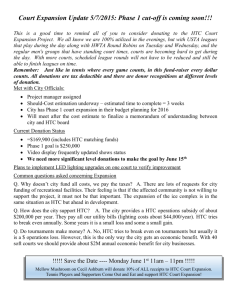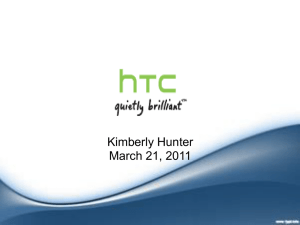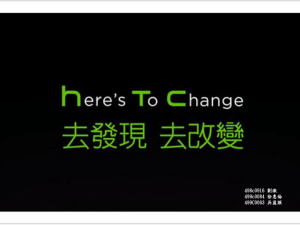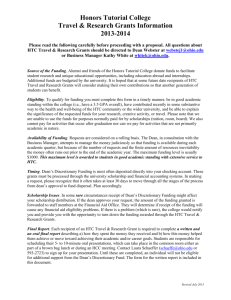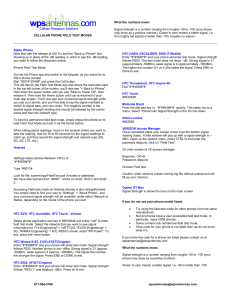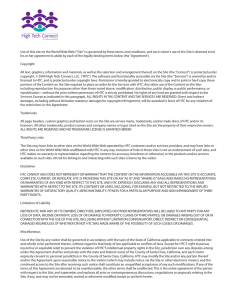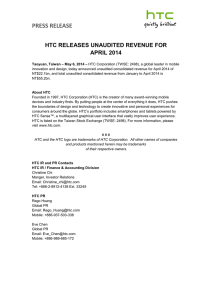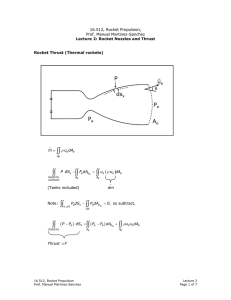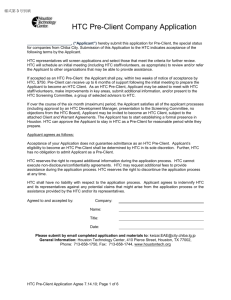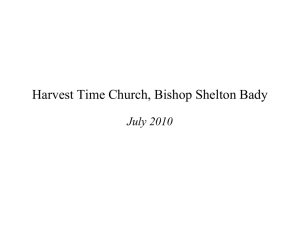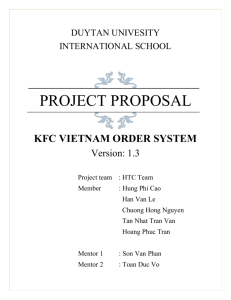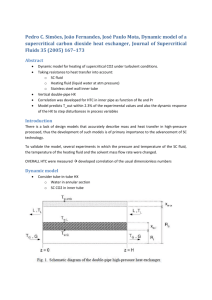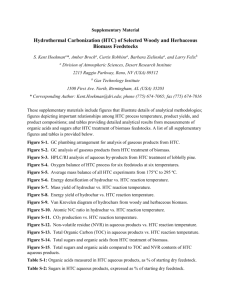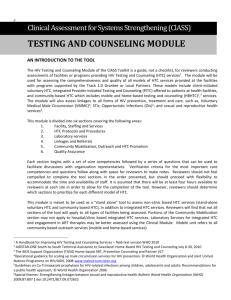Historical Thinking Concepts (HTC)
advertisement
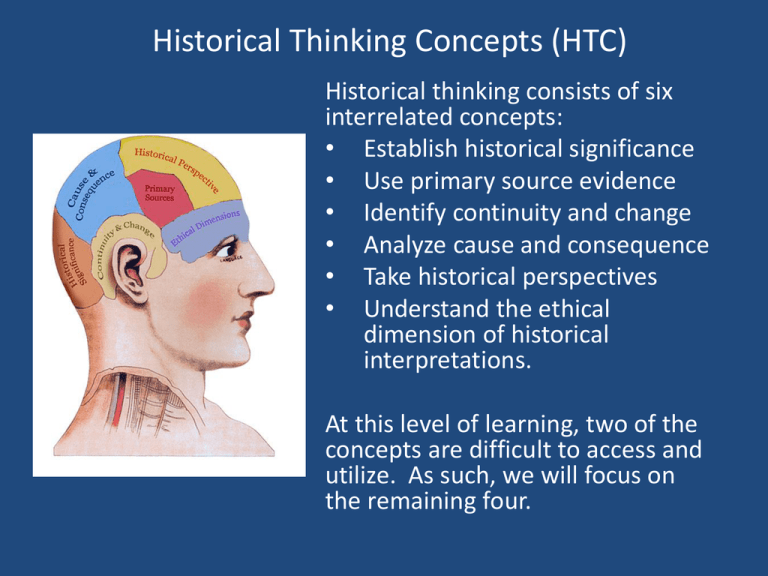
Historical Thinking Concepts (HTC) Historical thinking consists of six interrelated concepts: • Establish historical significance • Use primary source evidence • Identify continuity and change • Analyze cause and consequence • Take historical perspectives • Understand the ethical dimension of historical interpretations. At this level of learning, two of the concepts are difficult to access and utilize. As such, we will focus on the remaining four. Historical Thinking Concepts (HTC) Historical Significance • Too much history to remember. Choose “more important”. • Need selection criteria (e.g., great change over long periods of time for large numbers of people. NOTE: Significance depends upon one’s perspective and purpose) • Link it to a larger trend. For example, Anne Frank is small relative to scale of Holocaust; yet, her story is significant when portraying to explain the larger struggle (i.e., insignificant reveals important information). Historical Thinking Concepts (HTC) Continuity and Change • History as a complex mix of continuity and change. • Change rapidly and dynamically, relatively continuous and somewhat static, and everything in between • Change is linked. Events not isolated. Change may be negative Change can be grouped (e.g., your high school experience). Historical Thinking Concepts (HTC) Cause and Consequence • Need to answer “how and why”. • Link cause to outcomes: “What were the actions, beliefs and circumstances that led to the consequences?” • People cause change, and people are motivated to act (…or not). • Cause is also circumstantial. For example, the racial attitudes contributed to the 1887 anti-Chinese riot in Vancouver, but did the attitude cause the riot? Desperate Chinese workers were paid less than regular wage rate. How did this contribute to friction between groups? Historical Thinking Concepts (HTC) Ethical Dimension • What responsibilities do historical crimes and sacrifices impose upon us today/ • Interpret and judge history with present-day standards. • A historical perspective requires that we understand the differences between our ethics and past ideas to prevent us from imposing our standards on the past. At the same time, we do not want to minimize or ignore actions (e.g., Holocaust, Civil Rights movement). Learn from the past to help face and solve the ethical issues of today. Historical Thinking Concepts (HTC) Use the four HTCs to discuss the following persons or events in Canadian history. Historical Thinking Concepts (HTC) Rubin “Hurricane” Carter Historical Thinking Concepts (HTC) Canadian Armed Forces Historical Thinking Concepts (HTC) Irene Murdoch Historical Thinking Concepts (HTC) Rob Ford Historical Thinking Concepts (HTC) Memphis Three Historical Thinking Concepts (HTC) Justin Bieber
